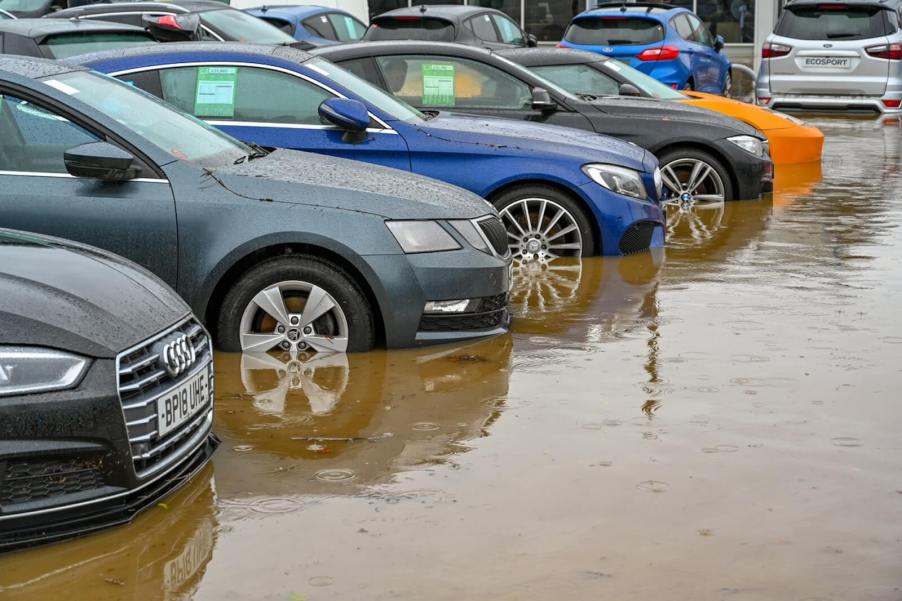
Car buyers beware of flooded cars for sale after Hurricane Helene
Unsurprisingly, cars and water don’t really mix. There are exceptions, of course. For instance, the hilariously cartoonish Amphicar could swim about as well as it drove. That’s not a compliment. For most cars, a trip into a lake, river, or flood waters is terminal. That said, flooded cars find their way onto used car lots and resale sites with some frequency. And with the devastation of Hurricane Helene, car buyers should be wary of once-submerged cars.
Hurricane Helene could mean many flooded cars head to market and buyers should be cautious
Unfortunately, Hurricane Helene damaged more than critical infrastructure. It flooded homes, businesses, schools, and yes, cars. As a result, car buyers must be vigilant for previously submerged or flooded vehicles. After all, a submerged car’s electrical system will likely never be the same after the fact.
According to data from CARFAX, cities like Houston, New York, and Miami lead the country with water-damaged cars, trucks, and SUVs. Now, with the extent of Hurricane Helene’s damage, vehicles from communities like Asheville, North Carolina might be concealing water damage. Moreover, some car flippers will buy a flooded vehicle, clean it, ensure it’s in running order, and sell it for a profit elsewhere.
However, you can stay one step ahead of flood damage by using some of these tips from Kelley Blue Book (KBB).
- Look underneath the spare tire and carpeting for rust and corrosion.
- Inspect the headlights for trapped moisture.
- Smell the car. It sounds crazy, but mold is an indicator of flood damage.
- Inspect fixtures like bolts, screws, and fasteners for rust and corrosion.
- Inspect the seats and other non-metal surfaces for water damage.
It’s a tragedy for vehicle owners. However, it’s not the responsibility of the next vehicle buyer to inherit a problematic vehicle. As such, I always recommend getting an independent pre-purchase inspection (PPI) before any used vehicle purchase. A thorough PPI will uncover issues that might not be apparent at a glance or in records. For instance, some drivers will repair a vehicle out-of-pocket to avoid altering their ride’s vehicle history.
The same goes for flood damage. An in-depth inspection by an independent party can uncover repairs and reveal flood damage like rust, electrical issues, trapped moisture, mold, and more.



